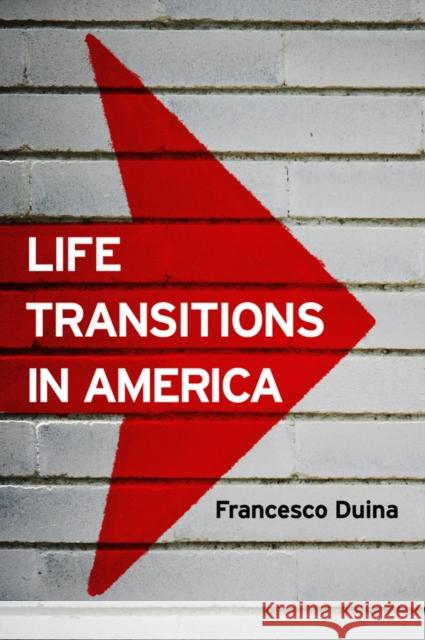Life Transitions in America » książka
Life Transitions in America
ISBN-13: 9780745670621 / Angielski / Miękka / 2014 / 352 str.
Life Transitions in America
ISBN-13: 9780745670621 / Angielski / Miękka / 2014 / 352 str.
(netto: 88,33 VAT: 5%)
Najniższa cena z 30 dni: 91,61
ok. 30 dni roboczych.
Darmowa dostawa!
We celebrate, talk about, and worry a great deal about transitions in life. Going to college, having a first child, losing a job, and retiring constitute just a few of the pivotal moments in the lives of many. Sociologists and psychologists have devoted considerable attention to life transitions. Yet we know very little about whether there exists a common thread to our understandings of life transitions in general. How do journalists, leading politicians, sport icons, bestselling authors, government agencies, Hallmark cards, popular TV shows, and other "voices" of popular culture talk about transitions in life? Do these voices provide a coherent picture of how we make sense of life transitions?
In this book, Francesco Duina shows how the dominant American discourse articulates two basic approaches to transitions in life. The first approach depicts transitions as exciting, individualistic opportunities for new beginnings: the past is cast aside, the future is wide open, and the self has the opportunity to recreate itself anew. The second paints transitions as having to do with continuity, our connections to others, and the life-cycle, with an emphasis on acceptance and adaptation. Though contrasting, the two approaches ultimately complement each other. Their analysis reveals a great deal about American culture and society, and will be of great interest to students of the life course and the sociology of culture.
We celebrate, talk about, and worry a great deal about transitions in life. Going to college, having a first child, losing a job, and retiring constitute just a few of the pivotal moments in the lives of many. Sociologists and psychologists have devoted considerable attention to life transitions.











